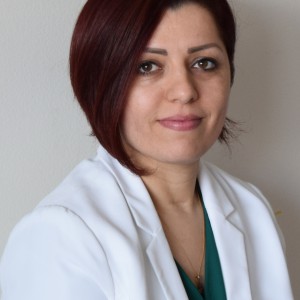
Media
Majdouline Y, Ohayon J, Keshavarz-Motamed Z, Roy Cardinal MH, Garcia D, Allard L, Lerouge S, Arsenault F, Soulez G, Cloutier G
Published by Ultrasound in Medicine & Biology. 2014, 40(5): 890-903
Endovascular shear strain elastography for detection and characterization the severity of atherosclerotic plaques: in vitro validation and in vivo evaluation
Keshavarz-Motamed Z, Edelman ER, Motamed PK, Garcia J, Dahdah N, Kadem L
Published by J Biomech. 2015, 48(16): 4229-4237
The role of aortic compliance in determination of coarctation severity: lumped parameter modeling, in vitro study and clinical evaluation. Journal of Biomechanics
Keshavarz-Motamed Z, Garcia J, Gaillard E, Capoulade R, LeVen FL, Cloutier G, Kadem L, Pibarot P
Published by PLoS One. 2014, 9(1): e86793
Non-invasive determination of left ventricular workload in patients with aortic stenosis using magnetic resonance imaging and Doppler echocardiography
Keshavarz-Motamed Z, Garcia J, Gaillard E, Maftoon N, Di Labbio G, Cloutier G, Kadem L
Published by Experiments in Fluids. 2014, 55: 1696
Effect of coarctation of the aorta and bicuspid aortic valve on flow dynamics and turbulence in the aorta using particle image velocimetry
Keshavarz-Motamed Z, Garcia J, Kadem L
Published by PLoS One. 2013, 8(8): e72394
Fluid dynamics of coarctation of the aorta and effect of bicuspid aortic valve
Keshavarz-Motamed Z, Garcia J, Maftoon N, Bedard E, Chetaille P, Kadem L
Published by Journal of Biomechanics. 2012, 45(7): 1239-1245
A new approach for the evaluation of the severity of coarctation of the aorta using Doppler velocity index and effective orifice area: in vitro study and clinical implications
Keshavarz-Motamed Z, Garcia J, Pibarot P, Kadem L
Published by Journal of Biomechanics. 2011, 44(16): 2817-2825
Modeling the impact of concomitant aortic stenosis and coarctation of the aorta on left ventricular workload
Keshavarz-Motamed Z, Kadem L
Published by Medical Engineering and Physics. 2010, 33(3): 315-324
Pulsatile flow in a curved tube with coexisting model of aortic stenosis and coarctationof the aorta
Keshavarz-Motamed Z, Kadem L, Dolatabadi A
Published by Journal of Microfluidics and Nanofluidics. 2010, 8(1): 47-56
Effects of dynamic contact angle on numerical modeling of electrowetting in parallel plate microchannels
Keshavarz-Motamed Z, Motamed PK, Maftoon N
Published by Medical Engineering & Physics. 2015, 37(3): 321-327
Non-invasive determination of aortic valve trans-catheter pressure gradient: an analytical model
Keshavarz-Motamed Z, Rikhtegar Nezami F, Partida RA, Nakamura K, Staziaki PV, Ben-Assa E, Ghoshhajra B, Bhatt AB, Edelman ER
Published by JACC: Cardiovascular Interventions. 2016, 9(18): 1953-1965
Elimination of trans-coarctation pressure gradients has no impact on left ventricular function or aortic shear stress post intervention in patients with mild coarctation
Keshavarz-Motamed Z, Saijo Y, Majdouline Y, Ohayon J, Cloutier G
Published by Atherosclerosis. 2014, 235(1): 140-149
Coronary artery atherectomy stabilizes plaque shear strains: an endovascular elastography imaging study
Benevento E, Dejebbari A, Keshavarz-Motamed Z, Cecere R, Kadem L
Published by LoS One. 2015, 10(4): e0123000
Flow distribution in aortic valve bypass: a mathematical modeling approach
Biography
Dr. Motamed is an assistant professor at the Department of Mechanical Engineering at McMaster University. She was a postdoctoral fellow in the Institute for Medical Engineering & Science at MIT (Cambridge, USA) and Harvard-MIT Biomedical Engineering Center (2014-2016). She received her PhD in mechanical engineering from Concordia University (Montreal, Canada) in 2012 where she was a part-time/adjunct faculty member from 2013 to 2014. Motamed was a postdoctoral fellow in University of Montreal/Laval University. She is a scientific consultant to medical device companies. She also has eight years of industrial experience in the design sector with a proven record of leadership and project and team management. Motamed’s research interests are in the areas of translational and basic cardiovascular mechanics. In her multidisciplinary research, she uses and advances knowledge in biomechanics, fluid mechanics, solid mechanics, medical imaging, and mathematical modelling. Cardiovascular disease is the leading cause of death globally, taking more lives than all forms of cancer combined. Despite advancement in surgical/interventional techniques, many cardiovascular patients do not respond favourably to treatments and, consequently, life expectancy for them remains reduced. Sources of morbidity can be explained on the basis of abnormal hemodynamics that lead to initiation and progression of cardiovascular diseases. A major part of Motamed's work is dedicated to the development of advanced numerical algorithms for simulation of cardiovascular mechanics and patient-specific modelling using medical imaging and clinical measurements with the following objectives: to develop most needed quantitative non-invasive diagnostic methods for cardiovascular disease, to design, develop, evaluate and optimize cardiovascular devices such as transcatheter heart valves, and vascular stents, to lead multidisciplinary collaborative efforts to translate engineering-based findings and developments into clinical practice. Due to the interdisciplinary nature of her research, Motamed established a very strong collaborative network with other researchers such as clinical scientists, surgeons, cardiologists, engineers, and applied mathematicians in Canada, USA and Europe, as well as with medical-device companies.
